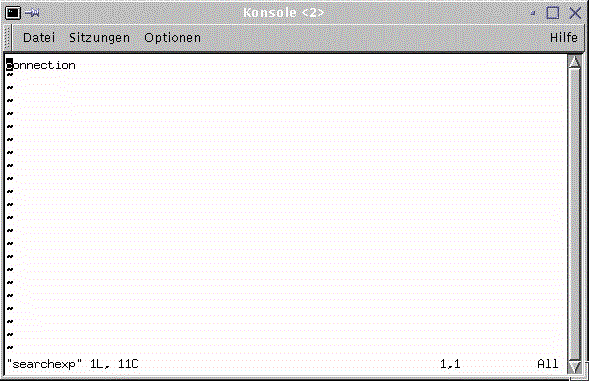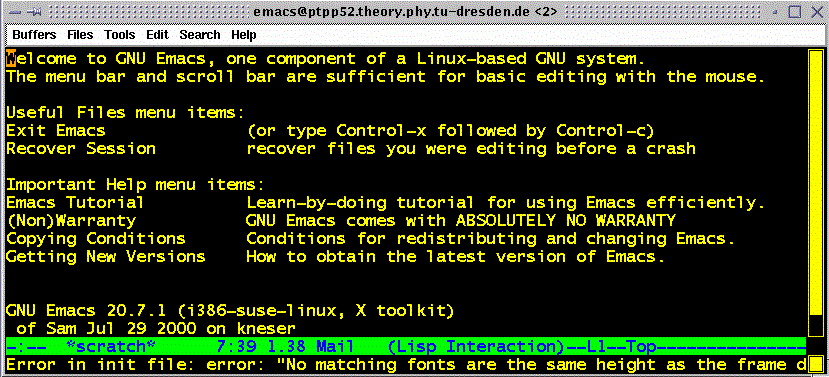editors: vi and emacs
- vi is the built-in editor in UNIX/LINUX.
- It does not need any graphics surface or ability.
- It is therefore highly portable and sometimes the user's last
hope.
- It has lots of options, only the few most basic ones will be
covered in the lecture.
- Most of the options are "clickable", we will learn some of the keyboard commands.
|
start vi |
vi [filename] |
|
input/command mode |
i/Esc |
|
save or quit |
command mode: :w or :q |
|
save and quit |
command mode: :wq |
|
undo last |
command mode: :u |
|
delete line or character |
command mode: d or x |

- emacs is another widely used editor in UNIX/LINUX.
- It does need a graphics surface.
- Its appearance and functionality can be manipulated in the .emacs
file.
- It has lots of options, only the few most basic ones will be
covered in the lecture.
- The options are steered partly by the minibuffer on the bottom.
|
start emacs |
emacs [filename] |
|
save or quit |
Ctrl-x Ctrl-s or Ctrl-x Ctrl-c |
|
write and find [name] |
Ctrl-x Ctrl-w or Ctrl-x Ctrl-f "name" |
|
delete line |
Ctrl-k |
|
set mark / delete from marked |
Ctrl-space / Ctrl-w |
|
recover last deleted |
Ctrl-y |
|
search |
Ctrl-s |
|
replace expressions |
Esc-x + type query-replace |
|
exit the minibuffer |
Ctrl-g |
